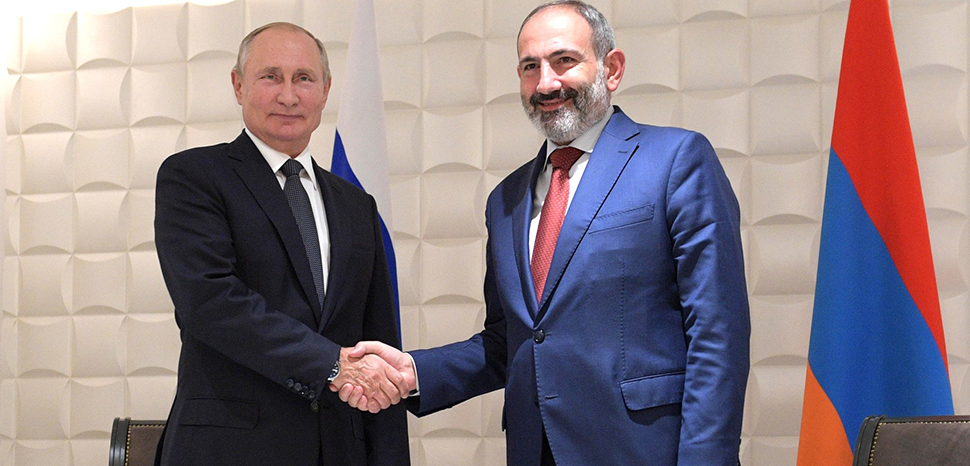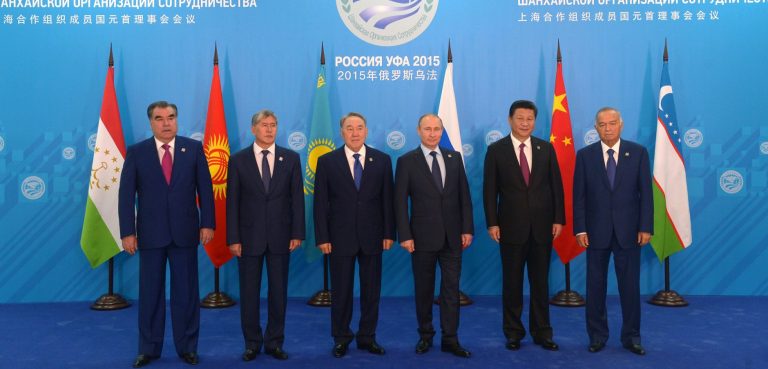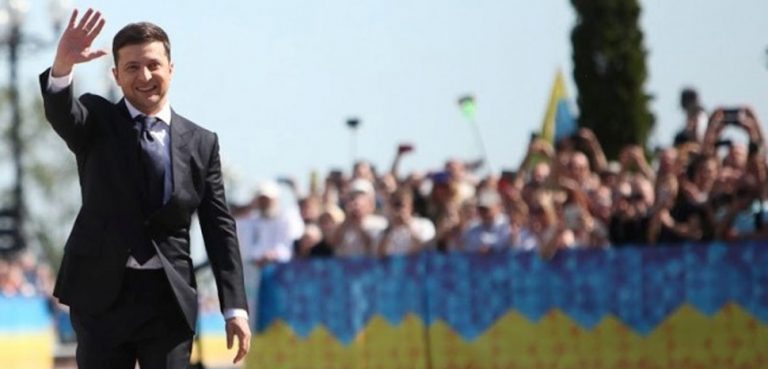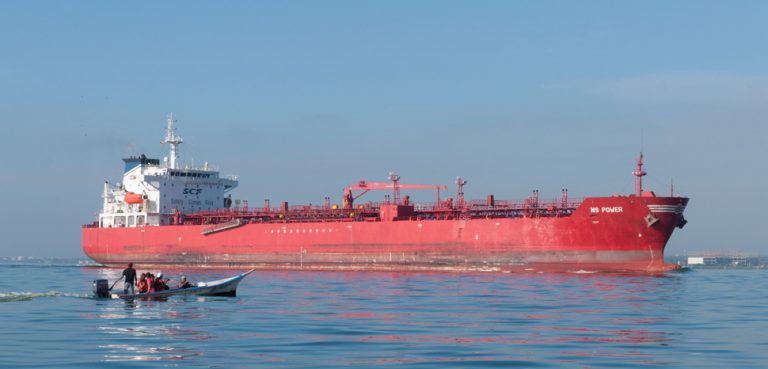Historically there has never been any conflict between Armenians and Ukrainians. Armenians have lived in Ukraine for centuries, and the Armenian Church of the Assumption of the Blessed Virgin Mary, modelled after the ancient Armenian Cathedral of Ani in Yerevan and built in 1363-1370, is to be found in Lviv, western Ukraine. Ukrainians commemorate Joseph Stalin’s ethnic cleansing of Crimean Tatars and other national minorities from Crimea in 1944, an upheaval that included 10,000 Armenians.
Why then does Armenia follow in Russia’s shadow and adopt hostile policies towards Ukraine? Armenia’s Ukrainophobia is reflected in five key policies that show it to be acting, similar to Belarus, as Russia’s proxy state.
The first is Armenia has always voted at the UN to support Russia’s illegal annexation of Crimea. It would seem that Armenian politicians and diplomats are not trained in international law and thereby do not understand that the concept of ‘self-determination’ does not apply to the territories of states. In international law, self-determination’ is only applicable to the right of countries to secede from empires or multi-national federations.
Armenia’s nationalist territorial claims to Karabakh, a territory internationally recognised as part of Azerbaijan, has led to double standards in the country’s diplomacy. If ‘self-determination’ were applied in the manner that Armenia defines. the Russian Federation would disintegrate as 21 autonomous republics, including Chechnya, would all have the right to secede. In the same manner, the so-called ‘self-determination’ of Crimea and Karabakh are not compatible with international law and the UN Charter.
Secondly, and continuing from the first point, Armenia supports separatism in Ukraine’s Donbas region of eastern Ukraine by backing the Kremlin-controlled Donetsk Peoples Republic (DNR) and Luhansk People’s Republics (LNR). As with Crimea, Armenia is providing ‘humanitarian’ and military support to the DNR and LNR, including mercenaries from Karabakh who are fighting against Ukraine. Karabakh Armenian mercenaries have joined mercenaries from Georgia’s South Ossetia and Abkhazia regions, both occupied by Russia since the early 1990s, fighting on behalf of Russian imperialism. Armenia has become a conduit for Syrian mercenaries going to fight for Russia in Ukraine.
Within the CSTO (Collective Security Treaty Organisation), the Kremlin’s answer to NATO, Armenia is firmly embedded with its hawks, Russia and Belarus. Three Central Asian members of CSTO – Kazakhstan, Kyrgyzstan, and Tajikistan – do not support Russian-backed separatism in Eurasia. Kazakhs President Kassym-Jomart Tokayev demonstrably refused, in front of Russian President Vladimir Putin, to recognise the DNR and LNR.
Thirdly, with Armenia so closely integrated into the hawkish wing of the CSTO, it is perhaps not surprising Yerevan has never condemned Russia’s invasion of Ukraine. Armenia has gone one step further and not only has not imposed sanctions but, together with Georgia, is helping Russia to evade Western sanctions.
Margarita Simonyan, the Armenian head of the Kremlin’s propaganda channel RT and Sputnik, has expressed strong support for Russia’s invasion of Ukraine. She tweeted: ‘This is a standard parade rehearsal; it’s just that this year we decided to hold the parade in Kyiv.’ Simonyan regurgitated Kremlin propaganda, claiming: ‘Nobody is fighting against Ukrainians! We’re liberating Ukraine!’ Simonyan ridiculed anti-war protests in Russia, stating that ‘If you are ashamed of being Russian now, don’t worry, you are not Russian.’
Simonyan has the same views as Russian fascists and White Russian imperialists who are calling for Russia to launch more deadly attacks against Ukraine. After the daughter of fascist Alexander Dugin was assassinated near Moscow, Simonyan called for Russia to bomb decision-making centres in Ukrainian cities and towns
Fourthly, because Russia has lost a large amount of military equipment in the war in Ukraine it has been searching for supplies in its proxy allies in Eurasia. China and Turkey refused to supply military equipment to Russia, which embarrassingly, and as a supposed ‘great power,’ has been forced to hold out a begging bowl.
Iran has diplomatically supported Russia in the war, refusing to call Moscow the aggressor and blaming the US and NATO for the war. Iran denied the US assertion that with the supply of drones its military support to Russia was ‘deepening an alliance with Iran to kill Ukrainians.’ Iran’s military cooperation with Russia preceded the current war in Ukraine and had allegedly not undergone any changes.
Armenia has proved to be different to China, Turkey, and Iran and is willing to assist Russia’s military invasion of Ukraine. Armenia has donated Soviet and Russian military equipment to Russia which has never hidden its intention to use these in its genocidal war against Ukraine and Ukrainians. Four Armenian SU-30 jet fighters have been donated to Russia.
Finally, Armenia is a geopolitical base for Russian attempts to maintain its sphere of influence in Eurasia. The number of Russian military bases in Armenia continues to grow; a new base is being built in the Tuvash region bordering Azerbaijan. In acting as Russia’s proxy state, Armenia plays the same role in the South Caucasus as Belarus does in the western region of Eurasia.
Armenia’s deep military and intelligence ties to Russia are inter-linked with the same close ties to Iran, a country that is designed by the US as a state sponsor of terrorism.
It is unclear against whom Armenia feels threatened so as to agree to act as a forward Russian military base and proxy state. After all, the normalisation of relations between Turkey and Armenia is reportedly entering a ‘new phase’ with progress registered after four face-to-face meetings and hundreds of phone calls between representatives of both countries. The EU is brokering negotiations towards a post-conflict peace treaty between Armenia and Azerbaijan.
The normalisation of Armenia’s relations with its two neighbours – Turkey and Azerbaijan – should lead to questions being asked in Armenia as to why the country needs so many Russian military bases. If they are not to defend the country against neighbours, with whom there will be signed peace treaties, then Russian military bases can only serve one function, which is to act as anti-Western outposts.
Ukraine has never adopted any policies which are hostile to Armenia’s national interests or discriminatory policies towards Armenians living in Ukraine. Unfortunately, Armenia – acting as Russia’s proxy state – has pursued five policies that are hostile to Ukraine and Western interests in Eurasia and the Greater Middle East.
Taras Kuzio is a Professor in Political Science at the National University of Kyiv Mohyla Academy




